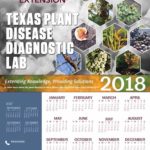 Late blight of potato
Late blight of potato
SCIENTIFIC NAME of causal agent: Phytophthora infestans (meaning from the Greek: phyto, meaning “plant” and the phthora, meaning “decay, ruin, perish”)
DISEASE DESCRIPTION
SYMPTOMS:
Late blight appears on potato leaves as pale green, water-soaked lesions, often beginning at leaf tips or edges. The circular or irregular leaf lesions are often surrounded by a pale yellowish-green border that merges with healthy tissue. Lesions enlarge rapidly and turn dark brown to purplish-black. All plant parts are susceptible, including foliage, stems and tubers. As a result of this damage, the plant experiences significant tissue desiccation, which can ultimately result in plant death.
BIOLOGY: P. infestans is an oomycete, more closely related to algae and to green plants than to true fungi.
P. infestans is a heterothallic species, requiring both mating types in order to reproduce sexually and results in a thick-walled zygote called an oospore. Oospores function as resting spores (persist for several years). Asexual reproduction happens in the sporangia. Sporangia are wind and water dispersed and can cause infection. Zoospores are produced in the sporangia and released when environmental conditions are favorable, such as periods of abundant leaf wetness and cool weather. Zoospores are also responsible for infecting the different plant parts of the potato.
P. infestans infection is weather and temperature dependent.
MANAGEMENT METHODS:
- Plant resistant varieties.
- Plant disease free seed tubers.
- Practice good weed control since solanaceous weeds can be a source of inoculum.
- Identify and eliminate drainage problems.
- Manage irrigation practices- schedule irrigation so that the soil does not stay wet for a prolonged period of time.
- Mefenoxam can be active against the Phytophthora As always, read and follow label specifications, warnings and recommendations when applying any fungicide.
RESOURCE LINKS:
- https://www.apsnet.org/edcenter/intropp/lessons/fungi/Oomycetes/Pages/LateBlight.aspx
- https://www.apsnet.org/edcenter/intropp/PathogenGroups/Pages/IntroOomycetes.aspx
Authored by Sheila McBride, TPDDL Diagnostician (MSc Plant Pathology 2016)
